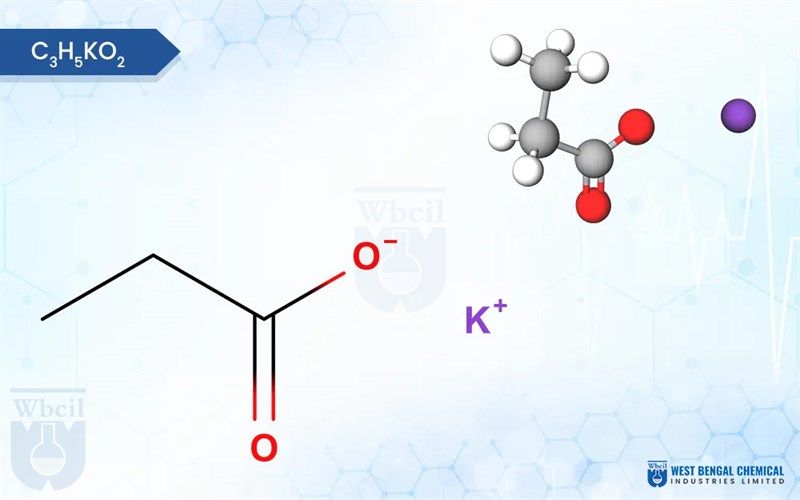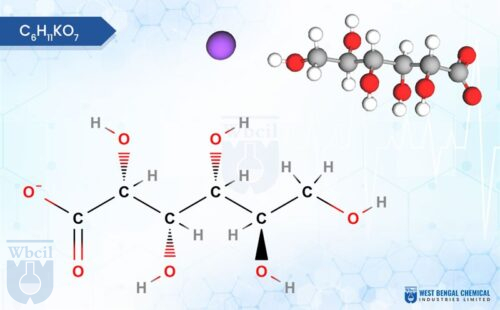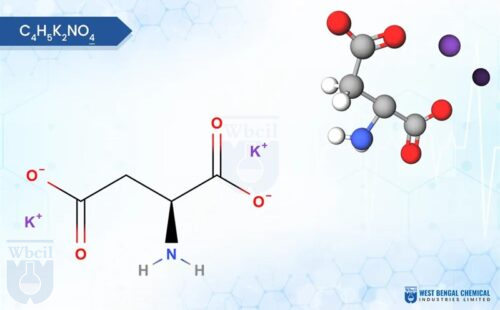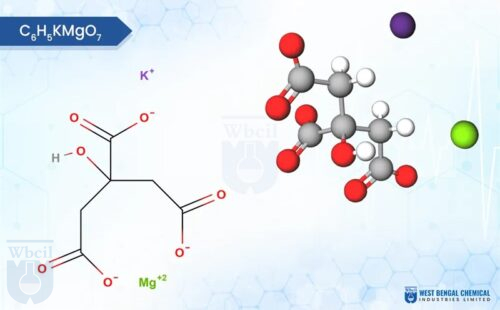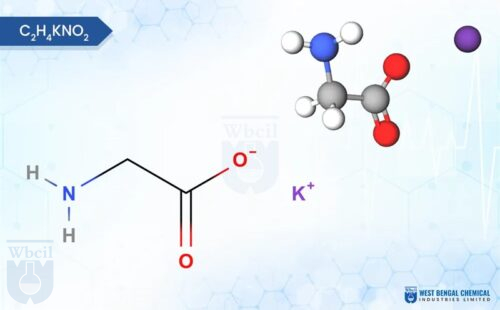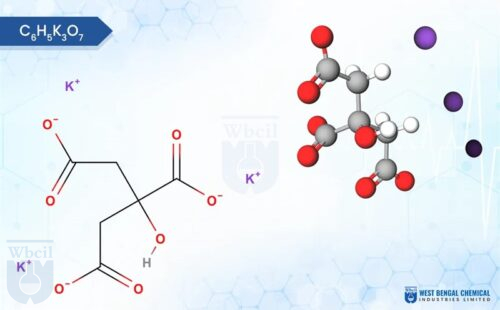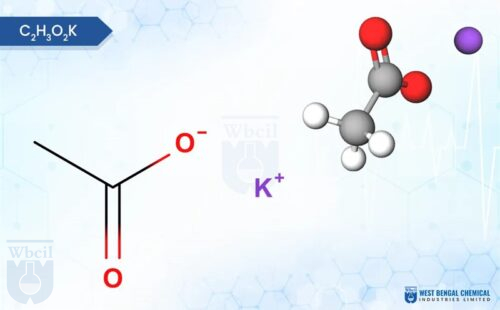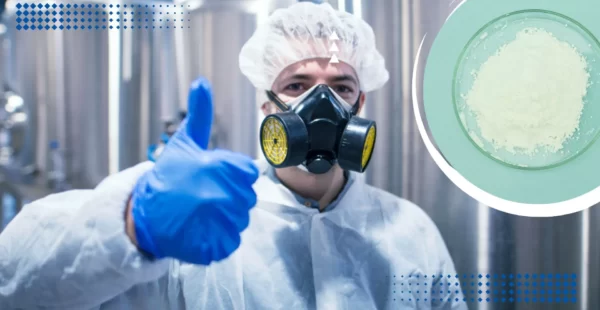-
Product Name:
Potassium Propionate
-
Molecular Formula:
C3H5KO2
-
Molecular Weight:
112.17 g/mol
-
CAS No.:
327-62-8
-
HSN Code:
327-62-8
-
CID Code:
23663619
-
Shelf Life:
3 years - 20°C powder
-
ChemSpider ID
64232
-
UNII No.
7H1F04CKTX
- USP
- IUPAC Names
- Synonyms
USP of Potassium Propionate
- Effective against molds and yeasts.
- Can inhibit certain bacterial strains.
- Prevents mold growth, ensuring food safety.
- GRAS status and approved for use in various foods.
- Works well with other preservatives.
- Easily incorporated into different food products.
- Does not affect flavor or sensory properties.
IUPAC Names of Potassium Propionate
potassium;propanoate
Synonyms of Potassium Propionate
- Potassium propionate
- 327-62-8
- Propionic Acid Potassium Salt
- Potassium propanoate
- Propanoic acid, potassium salt
- potassium;propanoate
- 7H1F04CKTX
- potassium,propanoate
- UNII-7H1F04CKTX

Description of Potassium Propionate
Potassium propionate is a white, crystalline powder with a slightly sour odor. It is hygroscopic, meaning it readily absorbs moisture from the air, which can lead to caking or clumping if not stored properly. The crystals are typically needle-shaped or prismatic in appearance. This compound is highly soluble in water and slightly soluble in ethanol. Potassium propionate is widely used as a food preservative due to its effectiveness in inhibiting the growth of mold and bacteria. Its versatility extends to other applications, such as feed additives for livestock and poultry, and as an excipient in certain pharmaceutical formulations. As a leading API manufacturer, WBCIL prioritizes strict CGMP and ISO quality control measures throughout the production process. The prolonged experience from 1962 ensures consistent potency, purity, and safety in every dose of WBCIL’s Potassium propionate.
Application of Potassium Propionate
Food Industry:
- Food Preservative: Potassium propionate is widely used in the food industry as an effective preservative against molds, yeasts, and certain bacterial strains. It helps prevent spoilage and extends the shelf life of various food products, particularly baked goods like bread and cakes. Its ability to inhibit mold growth makes it essential in maintaining food safety, reducing the risk of foodborne illnesses.
- GRAS (Generally Recognized as Safe): With GRAS status, potassium propionate is approved for use in multiple food categories. It is often incorporated into dairy products, processed meats, and sauces without affecting the flavor or texture of the food, preserving the natural sensory properties of the products.
- Synergy with Other Preservatives: Potassium propionate works effectively in combination with other food preservatives like sodium benzoate and sorbic acid, enhancing the overall preservation of food products and reducing the necessary concentration of each preservative.
Bakery and Confectionery Industry:
- Mold Inhibition in Baked Goods: In the bakery industry, potassium propionate is extensively used to prevent mold growth in products with high moisture content, such as bread, rolls, and cakes. Its antifungal properties help ensure the freshness of these products during transportation and storage, extending their shelf life without compromising taste.
- Maintaining Sensory Qualities: Since potassium propionate does not alter the flavor or aroma of baked goods, it is preferred in premium bakery items where preserving the natural taste and texture is critical. It is easily incorporated into dough formulations, ensuring consistent preservation.
Dairy and Processed Foods Industry:
- Preservation of Dairy Products: Potassium propionate is utilized in dairy products like cheese, where it helps inhibit the growth of molds and yeasts that can spoil the product. Its use in processed cheese and spreads ensures a longer shelf life and safer consumption.
- Processed Meat: Potassium propionate can also be found in processed meats, where it aids in preserving the product by inhibiting the growth of spoilage organisms without impacting the product’s taste or texture.
Pharmaceutical Industry:
Antimicrobial Agent: In the pharmaceutical sector, potassium propionate is occasionally used as a preservative in certain formulations to inhibit microbial growth. Its effectiveness against molds and yeasts makes it valuable in liquid medications and topical creams, where maintaining microbial stability is important.
Animal Feed Industry:
- Preservation in Feed: Potassium propionate is used in the animal feed industry to prevent mold growth in livestock feed, ensuring that the nutritional value of the feed remains intact and safe for consumption. This is especially important for high-moisture feed products, where mold growth can be a concern.
- Enhancing Shelf Life: Its use in feed storage helps to extend the shelf life of feed products, preventing spoilage and reducing waste, which is crucial for both economic efficiency and animal health.
Agriculture and Horticulture:
Mold Inhibition in Stored Crops: Potassium propionate can also be used in the storage of grains and other crops to prevent mold growth. This helps maintain crop quality during storage and transportation, particularly in regions where high humidity could lead to spoilage.


